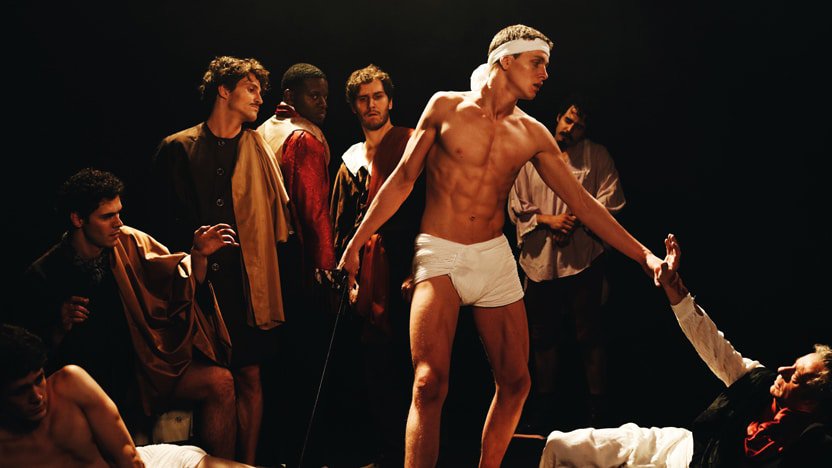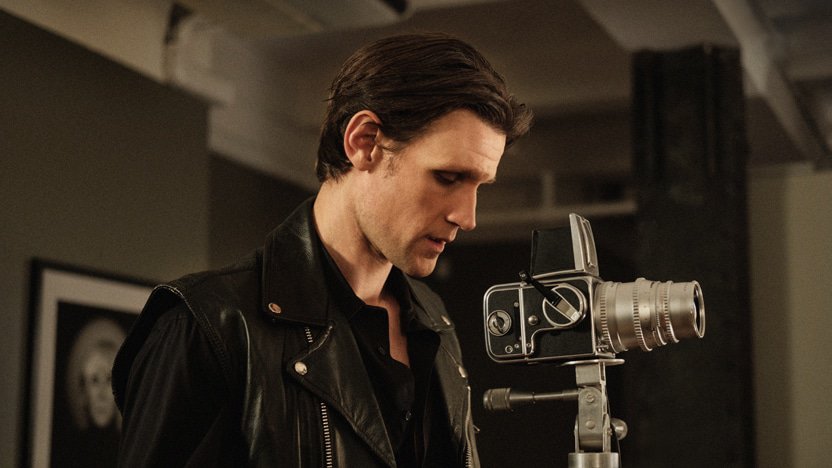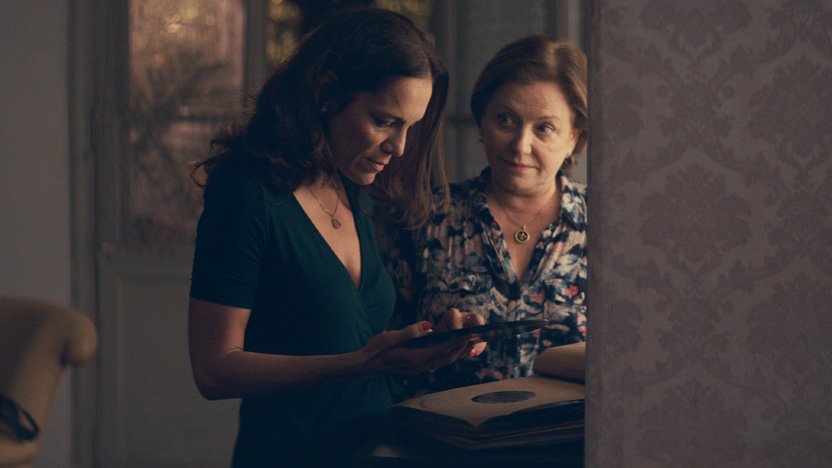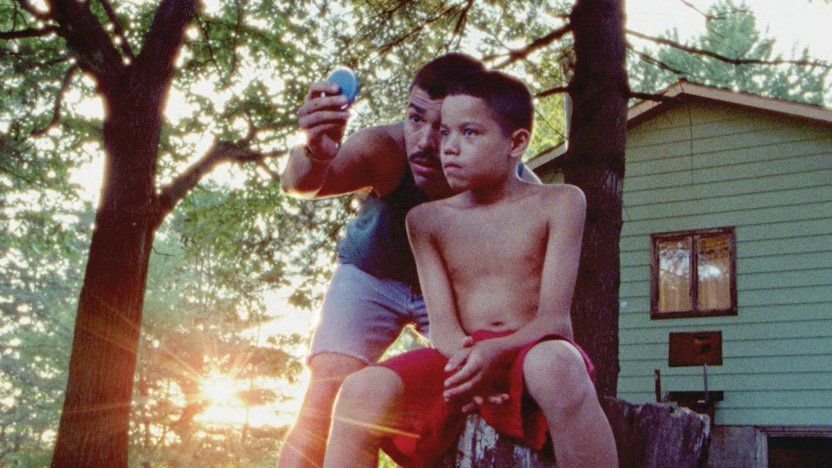
Striking a defiant stance, San Francisco’s LGBTQ Festival Frameline celebrates its 42nd year with the theme: “Lights. Camera. Take Action,” a reminder that film has always been used as a means of change and that queer film, even as it matures, can serve as a lightning rod for bold, even radical ideas and stories.
Frameline predicts that this year the festival will draw upwards of 60,000 film lovers and filmmakers – from LGBTQ communities around the Bay Area and around the globe – to experience the latest and best in queer cinema.
A majority of the films selected this year were directed by women. 39 countries are represented among the total of 153 films – documentaries, dramas, comedies and shorts – and 25 World Premieres.
It’s worth noting that during the prime of “new queer cinema,” international films were often built around themes that had been thoroughly explored here in the US. But this year as in the recent past, foreign films and in particular South American films are offering fresh perspectives. Also this year, films about the arts and artists really pop.
Postcards from London is Steve McLean’s long-awaited follow-up to his seminal 1994 film, Postcards from America, which was based on the work of artist David Wojnarowicz.
Here Mclean pays homage to directors like Fassbinder, Bidgood, and Jarman using a dreamy, overtly stylized aesthetic to tell the story of Jim, the achingly handsome Harris Dickinson, who on his first night out in London’s SOHO is robbed.
Luckily he is introduced to ‘the Raconteurs’ – a sexy set of stylish and bookish young men who also happen to be high-end call boys who specialize in using their knowledge of art history to bring homoerotic paintings to life for their aging clientele. But soon Jim learns that for him, sex and art is the same thing, and their rewards can have rapturous and alarming consequences.
Visually fanciful, playful and ultimately optimistic, ‘Postcards’ is an unconventional coming of age story. A blank canvas not set in any specific time; a love letter to a pastiche of SOHO’s that perhaps never existed except in the minds of young gays and lesbians traveling to the big city.

Mapplethorpe
At one point ‘Postcard’s’ Raconteurs reflect on Robert Mapplethorpe’s work — calling it cold, shallow and lacking emotion. One could argue that Ondi Timoner’s narrative debut, Mapplethorpe is guilty of the same qualities in how it covers the artist’s life.
Anyone familiar with the outlines of Mapplethorpe’s biography may not learn anything new, but with a surprisingly alive and compelling portrayal of Mapplethorpe by Matt Smith (The Crown) this film is well worth seeing.
Gay audiences will revel in the fact the director does not shy away from the artist’s most sexually charged work; rather she cleverly and appropriately weaves it into the film, it’s power magnified when flashed on a huge screen.
And while the definitive biography of Mapplethorpe remains the brilliant 2016 HBO documentary Look at the Pictures, anyone with interest in Mapplethorpe will – thanks to Smith’s performance — stay interested from beginning to end.
Imagine a young performer using his art: a mix of sex and commerce, but in contemporary Brazil, fighting isolation and poverty on a gay cam site. In Hard Paint, “Neon Boy,” as he has named his cam persona, transcends his bleak surroundings – painting himself in vibrant colors, in a black-lighted room where his erotic online shows pulse with techno and raw energy.
Offline Neon Boy is Pedro (Shico Menegat), and in Brazilian writer-director duo Filipe Matzembacher and Marcio Reolon’s moody drama it’s both Neon Boy and Pedro who take us along narrative themes of desertion, alienation, and longing which seep through each of the film’s three “chapters.”
As Pedro’s cam act becomes more popular there soon appears an imitator — who Pedro tracks down to demand he stops. But soon the two are a hit cam’ing together, ultimately transcending being watched and instead actually seeing each other. It’s a remarkable film that won this year’s coveted Teddy Award at the Berlinale.

The Heiresses
In another deeply affecting South American drama this time from Paraguay, The Heiresses mixes a keen character study and often poignant criticism of the treacherous codas of class, the lingering of sexual desire, and the slightly threadbare privileges of the wealthy in today’s Paraguay.
An older Lesbian couple, Chela and Chiquita, together thirty years in the small gossipy capital Asuncion are confronting financial difficulties and onerous unpaid tax bills.
Chiquita is sentenced to time in a women’s prison for financial impropriety (the prison scenes are so nuanced that I believe they must have been filmed on location). Chela reluctantly starts a taxi car service of sorts to and from her wealthy older friends’ gossipy weekly card games. It is an odyssey that introduces an exciting new sense of independence and through contact with a beautiful younger woman, of desire.
One of the best Documentaries of the festival juxtaposes two men as it opens, each sitting in dressing rooms a few miles apart, applying stage makeup. One is applying drag paint for a weekly bar extravaganza, while the other readies himself to portray a Roman soldier crucifying Christ.
So proceeds The Gospel of Eureka, a real-life story about a small southern town — Eureka Springs, Arkansas that is both a gay mecca of sorts and fiercely religious. The films parable is told through numerous story lines: the local production of a passion play, a gay rights referendum and a love story between two long partnered men which provides the film it’s emotional backbone.
The Gospel of Eureka takes an intimate and often comical look at how differences between religion and cultural belief systems, while being negotiated through national or large scale political action, are also occuring in small towns where the margin of life-changing wins and losses can be a few votes from your neighbors.

We the Animals
My favorite film on many levels this year was the dreamlike adaptation of Justin Torres’ autobiographical coming of age novel We the Animals. It uniquely captures the tough reality of a young man’s realization that his queerness marks him apart from his own family. It conjures and visually animates the rough and tumble of childhood, as parents fight and reconcile and fight again, and the family unravels before the realities of a blue-collar life — all told through the eyes of a very close trio of brothers. Sexual awakenings, violence both physical and emotional, and eventual self-realization all mix in front of a deft camera, and in images from young Johan’s cherished and powerfully illustrated secret diary.
It’s the most original take on the journey of self-realization — and especially of a queer identity — in years. We know that Johan will surely face more difficulties ahead, but that he has, at an early age, come to terms with himself — perhaps the most difficult task of all.
Frameline runs June 14–24, 2018 for information visit www.frameline.org
Related Topics: Film Festivals, Frameline, LGBTQ
